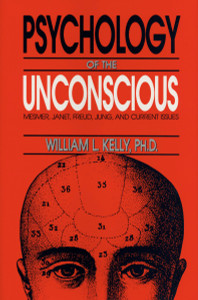In this text, Earl Hopper has made a major contribution to the understanding of the depth and breadth of individuals and how we might help them to know more of their patterns of relatedness with others, inter-personally, socially and culturally. Of particular note is the open honest manner of his consideration of his counter-transference and these can be clearly observed in the abundance of pertinent vignettes. This book draws attention to theory and practice in relation to a side of therapeutic work insufficiently attended to and will reward readers at all stages of professional development. It is written in a clear, accessible style and manages to convey complex ideas in a readily comprehensible manner'.
- Psychotherapy and politics international
'The Social Unconscious represents a line of thinking whose time has come. From bullying and youth violence in schools, to bombings in our cities, to anti-semitic or anti-Muslim activities and other race or religious hatred, to anxieties, well founded or otherwise, about immigration - wherever we live, all of us are touched and shaped by these events
This book draws attention to theory and practice in relation to a side of therapeutic work insufficiently attended to and will reward readers at all stages of professional development. It is written in a clear, accessible style and manages to convey complex ideas in a readily comprehensible manner.'
- Psychotherapy & Politics International
'Dr Hopper argues for the awareness of, and training in, the processes of what he terms the Social Unconscious, for all mental health professionals. Hopper provides insight into the multiple forces that affect us and how we may reorganize our constraints. Does Hopper simply find what he is looking for, or does he discover something new? I recommend readers take this book of essays seriously and make their own decision.'
- Psychologist - Psychoanalyst
'A very timely selection of papers by Earl Hopper on a very timely subject... People need to recognize that we are not merely passive sufferers of our world, rather we constitute it and have the power to shape it to a great extent. Much of what goes on in that world is unconscious in spite of the fact that we make it, therefore the importance of the social unconscious has been in the centre of Earl's interest for a number of years, and he has become one of the best known exponents of it.'
- Reflections
'This most timely book - with its ready application across disciplines in a world fragmented by group-induced conflicts and traumas - will, no doubt, stimulate many thoughts, feelings and new possibilities for integration.'
- Mark Ettin, Group Psychotherapist and Group Relations Consultant, USA
'The Social Unconscious offers a carefully composed selection of the author's group analytic contributions... the complexities of sociology, group analysis and psychoanalysis are put in mutually enriching perspectives.'
- Dieter Nitzgen, Psychoanalyst and Group Analyst, Germany
'This record will be a lasting contribution to the literature. He movingly records with startling honesty the details of his family background and current history with poetic grace, thus applying what he has learned of the social unconscious to his own practice.'
- W. Gordon Lawrence, Group Relations and Organizational Consultant, UK
'Earl Hopper's writing contributes a penetrating and unique view of pathology rooted in society as well as in the individual psyche.'
- Dennis Brown, Psychoanalyst and Group Analyst, UK
The social unconscious and its manifestations in group analysis are the focus of this important new book of Earl Hopper's selected papers. Drawing on sociology, psychoanalysis and group analysis, he argues that groups and their participants are constrained unconsciously by social, cultural and political facts and forces. These hypotheses are illustrated with clinical vignettes concerning anti-Semitism, racism, the politics of class and gender, and the effects of rapid social change. Transference and countertransference processes are examined both vividly and honestly. Theoretically generative and clinically astute, this book will be of value to both analysts and their students.







